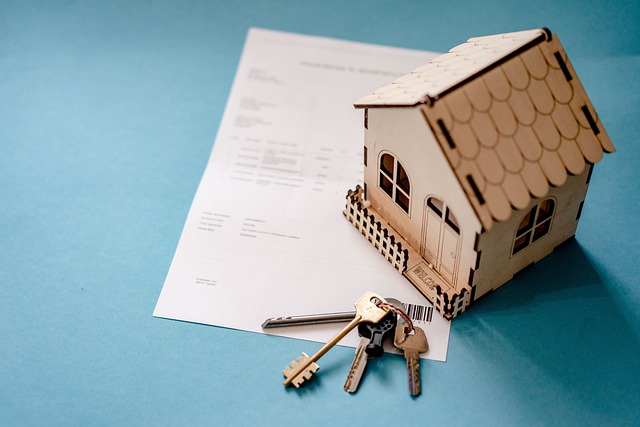Small businesses face unique risks that require tailored property insurance. Location and operational nature significantly impact coverage needs. All-Risk, Named Perils, and Specified Perils insurance options cater to diverse requirements. Standard policies cover common perils like fire and theft, with liability protection. Customization through endorsements addresses specific risks, such as equipment failure or food contamination. Assessing business value and assets is crucial for accurate coverage. Insurance brokers provide expert guidance in securing comprehensive protection. Regular policy reviews and updates ensure evolving needs are met, avoiding under-insurance or gaps in coverage.
Protecting your small business with adequate property insurance is essential for navigating unforeseen challenges. This guide breaks down the crucial aspects of understanding and securing your enterprise against physical damage, loss, or theft. From identifying unique business risks to customizing coverage, we’ll walk you through the process. Learn about different policy types, what’s typically covered, and how to assess your assets accurately. Discover the benefits of an insurance broker and avoid common pitfalls when buying property insurance. Stay proactive with regular reviews for a secure future.
Understanding Your Business's Unique Risks

Every small business is unique, and so are their risks. When it comes to property insurance, understanding these specific hazards is vital for a comprehensive protection plan. Factors like location play a significant role; whether your business is in a high-risk area prone to natural disasters or situated in a bustling city center with a high crime rate will directly impact the types of coverage needed. For instance, a retail store in a popular shopping district may require additional protection against theft and vandalism compared to a rural office space.
Moreover, the nature of your operations matters. Certain industries handle hazardous materials, have specialized equipment, or unique assets that necessitate tailored insurance policies. These risks can range from potential liability issues to physical damage. By thoroughly assessing these factors, business owners can ensure their property insurance adequately covers potential losses and provides peace of mind in an unpredictable world.
Types of Property Insurance Policies

Small businesses have a range of options when it comes to property insurance, designed to protect their valuable assets and ensure continuity in the event of unforeseen circumstances. The primary types include:
1. All-Risk Insurance: This comprehensive policy covers all perils except those explicitly excluded. It’s ideal for businesses seeking broad protection against events like fire, theft, vandalism, natural disasters, and equipment failure.
2. Named Perils Insurance: In contrast, this policy only covers specific risks listed in the policy document. While it offers more affordable premiums, it requires business owners to carefully consider potential hazards and ensure all named perils are accounted for.
3. Specified Perils Insurance: Similar to Named Perils, but with an emphasis on specific, limited risks, such as fire or storm damage. This option can be suitable for businesses that primarily want protection against a few defined events.
What is Covered Under Standard Policies?

Small businesses often rely on property insurance to protect their assets and ensure they can continue operations in case of unforeseen events. Standard policies typically cover a wide range of perils, including damage or destruction caused by fire, storms, vandalism, and theft. This protection extends to the physical structure of the business, such as the building, its foundation, and any permanent fixtures. For businesses with valuable inventory or equipment, these policies usually include coverage for loss or damage to goods, ensuring that replacement or repair costs are covered.
Additionally, many property insurance plans offer liability coverage, shielding small businesses from claims related to bodily injury or property damage occurring on their premises. This aspect is crucial as it protects the business against potential legal repercussions and financial losses resulting from accidents or incidents involving customers, employees, or visitors.
Customizing Your Coverage: Adding Endorsements

When it comes to property insurance for small businesses, customizing your coverage is key to ensuring you’re protected against potential risks unique to your operation. One effective way to achieve this is by adding endorsements to your policy. Endorsements are amendments or additions to your existing coverage, allowing you to tailor your insurance to fit specific business needs. For instance, if you run a restaurant, you might want to add an endorsement for equipment failure or food contamination to protect against these specific risks. Similarly, if your business involves storing valuable inventory, an endorsement for extra expenses could cover the cost of relocation or additional security measures during periods of high risk.
By carefully selecting and adding relevant endorsements, small business owners can create a property insurance policy that offers comprehensive protection. This proactive approach ensures that should unexpected events occur – from natural disasters to theft or damage – your business is prepared with coverage that aligns with its unique requirements.
Assessing Your Business's Value and Assets

When preparing for property insurance, assessing your business’s value and assets is a crucial step. Start by documenting all physical possessions, including equipment, inventory, and fixtures. Assigning dollar values to each item may seem daunting, but consider enlisting help from industry experts or consulting past financial records to ensure accuracy. This comprehensive inventory will serve as a foundational reference for any future claims.
Additionally, don’t underestimate the value of intangible assets like intellectual property, customer databases, and brand reputation. These elements contribute significantly to your business’s success and must be covered under property insurance policies. Evaluate the risks associated with these assets and ensure your policy offers adequate protection against potential threats such as data breaches or copyright infringement.
The Role of an Insurance Broker in Small Business Protection

When it comes to safeguarding their future, small business owners often turn to insurance brokers for guidance and protection. These professionals play a pivotal role in navigating the complex landscape of property insurance options available to businesses. An insurance broker acts as a bridge between the client and various insurance carriers, offering expert advice tailored to the unique needs of each business.
By leveraging their industry connections and knowledge, brokers help small business owners secure comprehensive property coverage that protects their assets, including buildings, inventory, and equipment. They take the time to understand the specifics of each business—its location, operations, and potential risks—to recommend the most suitable insurance policies. This personalized approach ensures that business owners receive optimal protection while making informed decisions about their financial security.
Common Mistakes to Avoid When Buying Property Insurance

Many small business owners, in their eagerness to protect their investments, sometimes make mistakes while purchasing property insurance that can leave them under-insured or even worse, over-paying for coverage they don’t need. A common oversight is not understanding the specific needs of their business and its assets; every business is unique, and so are its risks. For instance, a retail store owner might assume general liability coverage is sufficient, but they should also consider product liability insurance to protect against claims related to sold goods.
Another mistake is not reviewing policy details carefully. Business owners should pay close attention to exclusions, limits, and conditions mentioned in the policy document. They must ensure that their property insurance covers potential risks like natural disasters, theft, vandalism, or business interruption. Additionally, regularly updating policies is crucial as businesses grow, new assets are acquired, or operations expand to different locations.
Staying Protected: Regular Reviews and Updates

Regular reviews and updates are essential aspects of staying protected with property insurance for small businesses. As your business grows or your risks evolve, it’s crucial to reassess your coverage needs. Property insurance policies should be tailored to your specific business requirements, ensuring you’re not overpaying for unnecessary coverage while also avoiding gaps in protection. Conducting periodic policy audits allows you to identify potential shortcomings and make necessary adjustments promptly.
By staying on top of these reviews, you can ensure that your property insurance keeps pace with changes in your business operations, asset values, and risk profile. This proactive approach not only safeguards your investment but also provides peace of mind, knowing that your business is adequately protected against unforeseen events.
